| Listing 1 - 10 of 1694 | << page >> |
Sort by
|
Book
ISBN: 1526131404 9781526131409 9781526131416 1526131412 1526131382 Year: 2018 Publisher: Manchester, UK : Manchester University Press,
Abstract | Keywords | Export | Availability | Bookmark
 Loading...
Loading...Choose an application
- Reference Manager
- EndNote
- RefWorks (Direct export to RefWorks)
This book produces a major rethinking of the history of development after 1940 through an exploration of Britain’s ambitions for industrialisation in its Caribbean colonies. Industrial development is a neglected topic in histories of the British Colonial Empire, and we know very little of plans for Britain’s Caribbean colonies in general in the late colonial period, despite the role played by riots in the region in prompting an increase in development spending. This account shows the importance of knowledge and expertise in the promotion of a model of Caribbean development that is best described as liberal rather than state-centred and authoritarian. It explores how the post-war period saw an attempt by the Colonial Office to revive Caribbean economies by transforming cane sugar from a low-value foodstuff into a lucrative starting compound for making fuels, plastics and medical products. In addition, it shows that as Caribbean territories moved towards independence and America sought to shape the future of the region, scientific and economic advice became a key strategy for the maintenance of British control of the West Indian colonies. Britain needed to counter attempts by American-backed experts to promote a very different approach to industrial development after 1945 informed by the priorities of US foreign policy.
Technological innovations --- Breakthroughs, Technological --- Innovations, Industrial --- Innovations, Technological --- Technical innovations --- Technological breakthroughs --- Technological change --- Creative ability in technology --- Inventions --- Domestication of technology --- Innovation relay centers --- Research, Industrial --- Technology transfer --- History --- Great Britain --- Colonies --- Economic policy. --- science --- experts --- development --- empire --- Caribbean --- late colonial --- sugar --- industrialisation --- British West Indies --- Trinidad --- United Kingdom of Great Britain and Ireland --- Humanities. --- History. --- History: specific events and topics. --- Colonialism and imperialism. --- HISTORY / Europe / Great Britain / 20th Century.

ISBN: 3792803968 9783792803967 Year: 1977 Volume: 99 Publisher: Bonn: Röhrscheid,
Abstract | Keywords | Export | Availability | Bookmark
 Loading...
Loading...Choose an application
- Reference Manager
- EndNote
- RefWorks (Direct export to RefWorks)
History of Germany and Austria --- anno 1400-1499 --- anno 1300-1399 --- Middle Ages --- Friedrich von Saarwerden, --- Cologne (Electorate) --- Politics and government --- Middle Ages. --- Rhineland (Germany) --- Politics and government. --- Friedrich von Saarwerden, - Erzbischof von Köln, - 1370-1414 --- Cologne (Electorate) - Politics and government
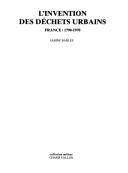
ISBN: 2876734176 9782876734173 Year: 2005 Volume: *22 Publisher: Seyssel: Champ Vallon,
Abstract | Keywords | Export | Availability | Bookmark
 Loading...
Loading...Choose an application
- Reference Manager
- EndNote
- RefWorks (Direct export to RefWorks)
En France, les municipalités produisent aujourd'hui 47 millions de tonnes de déchets par an ; elles consomment environ 6 milliards de mètres cubes d'eau et produisent à peu près la même quantité d'eaux usées. Les villes consomment donc beaucoup et perdent presque autant. Elles constitueraient, selon l'écologue Eugen Odum, des écosystèmes parasites, vivant au détriment des autres tout en affectant le fonctionnement biogéochimique de la biosphère. Déchets et eaux usées sont d'excellents traceurs des relations qu'entretiennent les sociétés et la nature et permettent de s'interroger sur la permanence du parasitisme urbain - question d'importance au regard des enjeux du développement durable. Une première analyse laisserait penser que l'industrialisation et l'urbanisation caractéristiques des deux derniers siècles ont renforcé le rôle destructeur des villes et la production de déchets de toutes natures : le déchet serait en quelque sorte consubstantiel à la ville. Sabine Barles revient ici sur cette hypothèse en montrant que l'invention des déchets urbains est relativement récente. L'analyse et l'exploitation du cycle des matières furent en effet déterminantes au cours de la première révolution industrielle. Leur circulation de la maison à la rue, de la rue et de la fosse d'aisances à l'usine ou au champ contribua au premier essor de la consommation urbaine. Scientifiques, industriels, agriculteurs - parfois confondus - regardèrent la ville comme une mine de matières premières et participèrent, aux côtés des administrations municipales, des services techniques et des chiffonniers, à la réalisation d'un projet urbain visant à ne rien laisser perdre, projet garant de la salubrité urbaine, du dynamisme économique et de la survie alimentaire. Ce n'est que lorsque industrie et agriculture purent se passer de la ville qu'elles lui abandonnèrent ses excreta au profit d'autres matières premières plus abondantes, plus rentables, plus commodes. De fait on assiste, à partir des années 1880, à une dévalorisation progressive des excreta urbains qui se feront plus tard déchets et eaux usées, malgré les tentatives faites çà et là pour leur trouver de nouveaux débouchés. Chimistes et agronomes se détournèrent de la ville qui échappa dès lors à leurs compétences. La ville, principal lieu d'une consommation dont elle avait dans un premier temps permis l'essor, rompait ses liens matériels avec l'agriculture et l'industrie et devenait ce que dénonçaient les premiers écologues urbains : un parasite.
History of France --- anno 1700-1799 --- anno 1800-1999 --- Refuse and refuse disposal --- Refuse disposal industry --- Recycling industry --- Déchets --- Recyclage (Déchets, etc.) --- History --- Elimination --- Histoire --- Industrie --- Déchets urbains --- 19e siècle --- 20e siècle --- France --- French history - 18th-20th centuries - Solid wastes --- Déchets --- Recyclage (Déchets, etc.) --- History. --- Refuse and refuse disposal - France - History --- Refuse disposal industry - France - History --- Recycling industry - France - History --- RECYCLAGE (DECHETS, ETC.) --- Villes --- FRANCE --- Élimination --- 1790-1970 --- Déchet urbain --- Recyclerie
Book
ISSN: 19627505 ISBN: 9782713224195 2713224195 Year: 2014 Volume: 48 Publisher: Paris : EHESS,
Abstract | Keywords | Export | Availability | Bookmark
 Loading...
Loading...Choose an application
- Reference Manager
- EndNote
- RefWorks (Direct export to RefWorks)
Quatrième de couverture : "L'hystérie est une catégorie dont l'invention au XVIIIe siècle nous mène loin de l'hypnose pratiquée par Charcot et des cures analytiques de Freud. Elle est élaborée pour identifier une maladie nerveuse frappant les gens du monde, hommes et femmes, et les lettrés en particulier. Mais comment délimiter les contours de cette pathologie dont la caractérisation commence par la multitude désordonnée des symptômes ? Métaphores, citations et anecdotes orientent dissertations médicales et ouvrages littéraires. De l'animal indocile emprunté au Timée de Platon à une hydre, d'un protée à un caméléon, médecins et hommes de lettres rivalisent en images. Courtisans ou citoyens fervents de la nation nouvelle, ils déclinent l'hystérie au fur et à mesure des modes et des passions, et cristallisent les craintes et les rêves d'un temps. Découvrir cette littérature nous porte à apprécier la médecine telle qu'elle s'écrivait au XVIIIe siècle. S'éloignant des traités à système, les médecins s'adressent à leurs patients au nom d'une sensibilité qu'ils partagent avec eux, et publient dialogues, autobiographies et correspondances pour faciliter cet échange. Ils présentent l'acte médical comme une relation selon laquelle la prévenance est la contrepartie du récit de soi. Les enjeux changeants d'un diagnostic prennent forme tandis que se transforment le statut du médecin et le rôle de la médecine."
Psychiatry --- History of human medicine --- anno 1600-1699 --- anno 1800-1899 --- anno 1700-1799 --- Hysteria --- Mental illness --- Medicine --- Hystérie --- Maladies mentales --- Médecine --- History --- Philosophy --- Histoire --- Philosophie --- Mental Disorders --- History of Medicine --- history --- Hystérie --- Médecine --- Hysteria in literature. --- Mental health --- History. --- Hysteria - history - France --- Mental Disorders - history - France
Book
ISBN: 366245145X 3662451441 Year: 2014 Publisher: Berlin, Heidelberg : Springer Berlin Heidelberg : Imprint: Springer,
Abstract | Keywords | Export | Availability | Bookmark
 Loading...
Loading...Choose an application
- Reference Manager
- EndNote
- RefWorks (Direct export to RefWorks)
The series Advances in Polymer Science presents critical reviews of the present and future trends in polymer and biopolymer science. It covers all areas of research in polymer and biopolymer science including chemistry, physical chemistry, physics, material science. The thematic volumes are addressed to scientists, whether at universities or in industry, who wish to keep abreast of the important advances in the covered topics. Advances in Polymer Science enjoys a longstanding tradition and good reputation in its community. Each volume is dedicated to a current topic, and each review critically surveys one aspect of that topic, to place it within the context of the volume. The volumes typically summarize the significant developments of the last 5 to 10 years and discuss them critically, presenting selected examples, explaining and illustrating the important principles, and bringing together many important references of primary literature. On that basis, future research directions in the area can be discussed. Advances in Polymer Science volumes thus are important references for every polymer scientist, as well as for other scientists interested in polymer science - as an introduction to a neighboring field, or as a compilation of detailed information for the specialist. Review articles for the individual volumes are invited by the volume editors. Single contributions can be specially commissioned. Readership: Polymer scientists, or scientists in related fields interested in polymer and biopolymer science, at universities or in industry, graduate students.
Chemistry. --- Organic chemistry. --- Polymers. --- Semiconductors. --- Optical materials. --- Electronic materials. --- Polymer Sciences. --- Optical and Electronic Materials. --- Organic Chemistry. --- Optics, Lasers, Photonics, Optical Devices. --- Optics --- Materials --- Polymere --- Polymeride --- Polymers and polymerization --- Macromolecules --- Physical sciences --- Crystalline semiconductors --- Semi-conductors --- Semiconducting materials --- Semiconductor devices --- Crystals --- Electrical engineering --- Electronics --- Solid state electronics --- Electronic materials --- Organic chemistry --- Chemistry --- Chemistry, Organic. --- Thiophenes --- Electric properties. --- Thiofurans --- Thiophene --- Organic cyclic compounds --- Organosulfur compounds --- Polymers . --- Lasers. --- Photonics. --- New optics --- Light amplification by stimulated emission of radiation --- Masers, Optical --- Optical masers --- Light amplifiers --- Light sources --- Optoelectronic devices --- Nonlinear optics --- Optical parametric oscillators
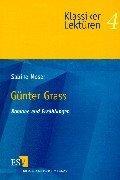
ISBN: 3503049606 9783503049608 Year: 2000 Volume: 4 Publisher: Berlin: Schmidt,
Abstract | Keywords | Export | Availability | Bookmark
 Loading...
Loading...Choose an application
- Reference Manager
- EndNote
- RefWorks (Direct export to RefWorks)

ISBN: 0761925708 1412984416 Year: 2003 Publisher: Thousand Oaks, Calif. ; London : SAGE,
Abstract | Keywords | Export | Availability | Bookmark
 Loading...
Loading...Choose an application
- Reference Manager
- EndNote
- RefWorks (Direct export to RefWorks)
This title helps to prepare in-person survey interviews. Beginning with the administrative considerations involved in setting up in-person interviews, Oishi explains how to write interview questions from an interview script with appropriated placed transition statements throughto the preparation of useful visual aids.
Qualitative methods in social research --- #SBIB:043.IOS --- #SBIB:303H32 --- 303.6 --- 303.425 --- Waarneming en participerende waarneming, gecontroleerde observatie, groepsdiscussie (vragenlijsten, interviews, experimenten) --- Verzamelen van gegevens. Feiten verzamelen --(sociaal onderzoek) --- Survey --sociaalwetenschappelijk onderzoek --- 303.425 Survey --sociaalwetenschappelijk onderzoek --- 303.6 Verzamelen van gegevens. Feiten verzamelen --(sociaal onderzoek) --- ENQUETES --- METHODOLOGIE --- Interviewing. --- Surveys --- Methodology.
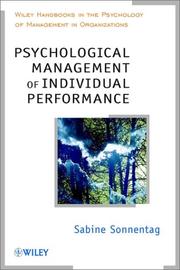
ISBN: 0471877263 Year: 2002 Publisher: Chichester Wiley
Abstract | Keywords | Export | Availability | Bookmark
 Loading...
Loading...Choose an application
- Reference Manager
- EndNote
- RefWorks (Direct export to RefWorks)
Detailed practice-relevant information on subjects as performance concepts, work design, cognitive ability and personality as predictors of performance, performance appraisal and potential analysis, goal setting, training, mentoring, reward systems, strategic HRM as well as broader issues such as well-being and organizational culture
Personnel management --- Industrial psychology --- Management --- psychologie, bedrijven --- performance measurement --- organisatieleer --- bedrijfscultuur --- personeelsevaluatie --- Employee motivation --- Performance standards --- Job performance standards --- Work performance standards --- Work standardization --- Employees --- Goal setting in personnel management --- Motivation in industry --- Work motivation --- Motivation (Psychology) --- Psychology, Industrial --- Psychological aspects --- Rating of --- Psychologie du travail --- Analyse organisationnelle --- Performance professionnelle --- Personnel -- evaluation --- Personnel -- gestion du --- Personnel (entreprise) --- Satisfaction au travail
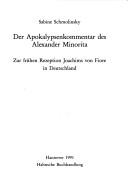
ISBN: 377525403X 9783775254038 Year: 1991 Volume: 3 Publisher: Hannover: Hahn,
Abstract | Keywords | Export | Availability | Bookmark
 Loading...
Loading...Choose an application
- Reference Manager
- EndNote
- RefWorks (Direct export to RefWorks)
Alexander, --- Joachim, --- Influence --- Bible --- Criticism, interpretation, etc. --- History --- 228 --- 2 JOACHIM FLORENSIS --- Apocalyps. Boek der Openbaring van Johannes. Apocalyptiek --- Godsdienst. Theologie--JOACHIM FLORENSIS --- Alexander Minorita --- Joachim of Fiore --- Theses --- 2 JOACHIM FLORENSIS Godsdienst. Theologie--JOACHIM FLORENSIS --- Bible. --- Fiore, Gioacchino da, --- Fiore, Joachim von, --- Gioacchino, --- Gioachino, --- Joachimus, --- Pseudo-Joachim, --- Abūghālimsīs --- Apocalipse (Book of the New Testament) --- Apocalisse (Book of the New Testament) --- Apocalypse (Book of the New Testament) --- Apocalypse of John --- Apocalypse of St. John --- Apocalypsis Johannis --- Apocalypsis S. Johannis --- Apokalypse (Book of the New Testament) --- Apokalypsin --- Book of Revelation --- Johannes-Apokalypse --- Johannesapokalypse --- Johannesoffenbarung --- Offenbarung des Johannes --- Revelation (Book of the New Testament) --- Revelation of St. John --- Revelation of St. John the Divine --- Revelation to John --- Ruʼyā (Book of the New Testament) --- Sifr al-Ruʼyā --- Yohan kyesirok --- Commentaries. --- Biblia --- Bible. Revelation --- Criticism, interpretation, etc --- Appreciation --- Germany --- Alexander, - Minorita, - -1271 - Expositio in Apocalypsim --- Apokalipsa św. Jana --- Apokalipsa świętego Jana --- ALLEMAGNE --- VIE INTELLECTUELLE --- APOCALYPSE --- BIBLE --- MOYEN AGE --- HISTOIRE --- COMMENTAIRES --- Vie intellectuelle
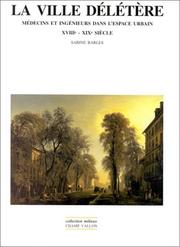
ISBN: 2876732815 9782876732810 Year: 1999 Volume: *6 Publisher: Seyssel : Champ Vallon,
Abstract | Keywords | Export | Availability | Bookmark
 Loading...
Loading...Choose an application
- Reference Manager
- EndNote
- RefWorks (Direct export to RefWorks)
Urban ecology (Sociology) --- Urban health --- Sanitary engineering --- Urbanization --- Ecologie urbaine --- Santé urbaine --- Technique sanitaire --- Urbanisation --- History --- Environmental aspects --- Histoire --- Aspect de l'environnement --- City planning --- Cities and towns --- Growth --- 613 --- 614.7 --- 711.164 --- 711.8 --- 944 --- 725 --- Hygiëne. Persoonlijke gezondheidszorg --- Hygiene of air, water, soil. Pollution and its control --- Planologie: saneringsplannen --- Planologie: openbare nutsvoorzieningen --- Geschiedenis van Frankrijk --- Burgerlijke bouwkunst. Civiele bouwkunst. Wereldlijke bouwkunst --- Public health --- History. --- 725 Burgerlijke bouwkunst. Civiele bouwkunst. Wereldlijke bouwkunst --- 944 Geschiedenis van Frankrijk --- 711.8 Planologie: openbare nutsvoorzieningen --- 711.164 Planologie: saneringsplannen --- Santé urbaine --- Cities and towns, Movement to --- Urban development --- Urban systems --- Social history --- Sociology, Rural --- Sociology, Urban --- Urban policy --- Rural-urban migration --- Community health --- Health services --- Hygiene, Public --- Hygiene, Social --- Public health services --- Public hygiene --- Sanitary affairs --- Social hygiene --- Health --- Human services --- Biosecurity --- Health literacy --- Medicine, Preventive --- National health services --- Sanitation --- Global cities --- Municipalities --- Towns --- Urban areas --- Human settlements --- Growth&delete& --- 18th century --- 19th century --- 944 History of France --- History of France --- Urbanization - France - Paris - History --- Urban health - France - Paris - History --- City planning - France - Paris - History --- Cities and towns - France - Growth - History --- Santé en milieu urbain --- Génie urbain --- Villes --- Hygienisme --- 18e-19e siècles
| Listing 1 - 10 of 1694 | << page >> |
Sort by
|

 Search
Search Feedback
Feedback About UniCat
About UniCat  Help
Help News
News